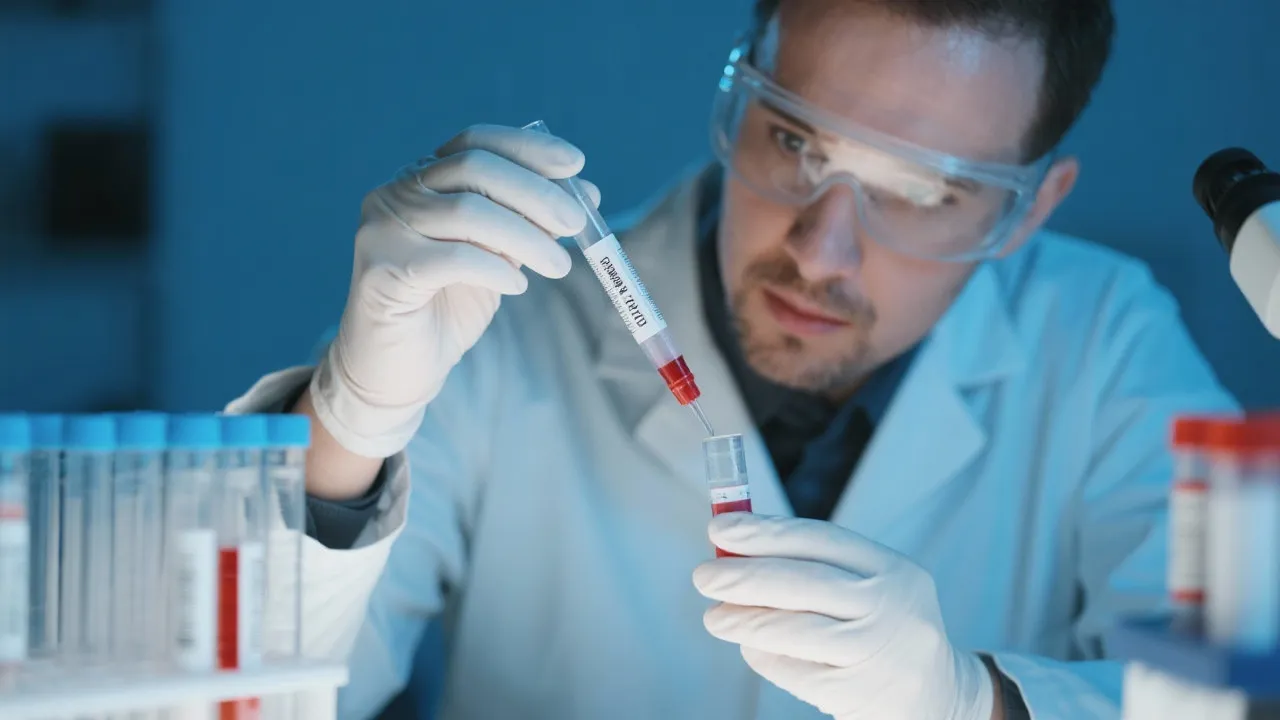This article delves into the intricacies of the D7324 antibody, a crucial component in biomedical research. Antibodies like D7324 play pivotal roles in scientific investigations, particularly in the detection and analysis of various biological markers. Through this article, readers will gain a comprehensive insight into the applications, benefits, and procurement of the D7324 antibody.

In the expansive field of biomedical research, antibodies serve as fundamental tools for detection and analysis. Among these, the D7324 antibody is noteworthy due to its specificity and application range, particularly in ELISA and Western blot assays. The D7324 is designed to detect biotinylated molecules, acting as a secondary detector in various experimental procedures, thus enabling precise quantification and analysis. As the demand for reliable and robust detection methods increases in various areas of research, the D7324 antibody has gained recognition for its performance and versatility.
The D7324 antibody has not only improved the accuracy of existing experiments but has also opened new avenues for discovery in molecular biology and medical diagnostics. Its significance is underscored by the growing body of literature that emphasizes the importance of using the right antibodies in experimental assays. With its ability to enhance sensitivity and specificity, the D7324 antibody is becoming an essential component in the toolkit of researchers working on biotin-related applications.
The D7324 antibody is predominantly utilized in biochemical assays that require the detection of biotin. Its popularity stems from its exceptional binding affinity, ensuring accurate and reproducible results. The primary applications of the D7324 antibody include:
Beyond these primary applications, the D7324 antibody has found usefulness in various emerging techniques such as flow cytometry, where it can aid in the quantification of biotinylated cells. Researchers are also exploring its potential in therapeutic settings, particularly in drug delivery systems that utilize biotinylated ligands for targeted therapies. The ability to fine-tune molecular interactions using the D7324 antibody is paving the way for innovative treatments in areas such as cancer and autoimmune diseases.
Several characteristics make the D7324 antibody a preferred choice in scientific research:
When sourcing the D7324 antibody, researchers look for reputable suppliers who can guarantee product quality and authenticity. Trusted vendors typically provide details about the antibody's origin, stability conditions, and application notes. Opting for suppliers with stringent quality controls ensures the reproducibility of research results.
Before purchasing the D7324 antibody, it is essential for researchers to review available data sheets and product specifications. This helps to ensure that the antibody is well-suited for their particular experimental design. Many suppliers also offer technical support and customer service, allowing researchers to inquire about specific applications and troubleshoot any issues that may arise during experimentation.
Some well-known suppliers like Thermo Fisher Scientific, Abcam, and Cell Signaling Technology are recognized for their high-quality antibodies. These suppliers often provide validation reports that confirm the effectiveness of the D7324 antibody in specific assays. As researchers navigate through options, reading user reviews and scientific publications that utilize the D7324 can further aid in selecting the most appropriate supplier for their needs.
The D7324 antibody's unique ability to specifically bind to biotin makes it extremely valuable in assays that require high precision and specificity. Unlike many general-purpose antibodies, the D7324 has been optimized to interact selectively with biotin, reducing the chance of background signal and improving the signal-to-noise ratio in experimental setups.
Yes, the D7324 antibody can be effectively used with various biotinylated probes, making it versatile for numerous biochemical assays. Whether biotin is conjugated to proteins, nucleic acids, or other biomolecules, the D7324 can facilitate detailed investigations of molecular interactions and quantification studies. This adaptability allows researchers to apply the antibody in diverse fields, from basic research to pharmaceutical development.
To preserve its activity, the D7324 antibody should be stored at recommended refrigeration temperatures, typically ranging from 2°C to 8°C. It is also crucial to protect the antibody from repeated freeze-thaw cycles, which can lead to degradation and loss of functionality. Many suppliers provide guidance on optimal storage conditions and shelf life to ensure maximum performance during usage.
While the D7324 antibody is highly effective, it is essential to acknowledge potential limitations in its usage. Factors such as sample complexity, the presence of interfering agents, and assay design can impact performance. For instance, high concentrations of non-specifically bound proteins may hinder the detection of intended biotinylated targets. Researchers should always perform preliminary experiments to establish optimal conditions and control for any variables that may affect results. Additionally, it may be necessary to validate the specificity of the D7324 antibody in various contexts to ensure reliable interpretations of findings.
As research fields evolve, so too does the technology surrounding antibody production and application. Recent advancements have led to the creation of next-generation antibodies that promise enhanced specificity, reduced cross-reactivity, and greater sensitivity, further building upon the foundation established by antibodies like D7324. Some key trends in antibody technology that researchers should be aware of include:
The future of antibody research promises to be vibrant, with numerous directions on the horizon that could further enhance their utility, including:
The D7324 antibody stands as an invaluable tool within the spheres of biomedical and biochemical research, offering unmatched specificity and usability across several pivotal assays. Ensuring its correct application and procurement from reputable sources remains integral to advancing scientific discoveries. The ongoing developments in antibody technology promise a bright future, potentially revolutionizing how research is conducted and how therapies are developed. With the increasing demands placed on biological research and diagnostics, antibodies like D7324 will play a critical role in facilitating groundbreaking discoveries and improving health outcomes worldwide.
Explore the Tranquil Bliss of Idyllic Rural Retreats

Ultimate Countdown: The 20 Very Legendary Gaming Consoles Ever!

Understanding Halpin and its Influence

Affordable Full Mouth Dental Implants Near You

Discovering Springdale Estates

Illinois Dentatrust: Comprehensive Overview

Embark on Effortless Adventures: Unveiling the Top in Adventures Made Easy Outdoor Equipment

Unveiling Ossur Valves: Innovation in Prosthetics

Unlock the Full Potential of Your RAM 1500: Master the Art of Efficient Towing!
